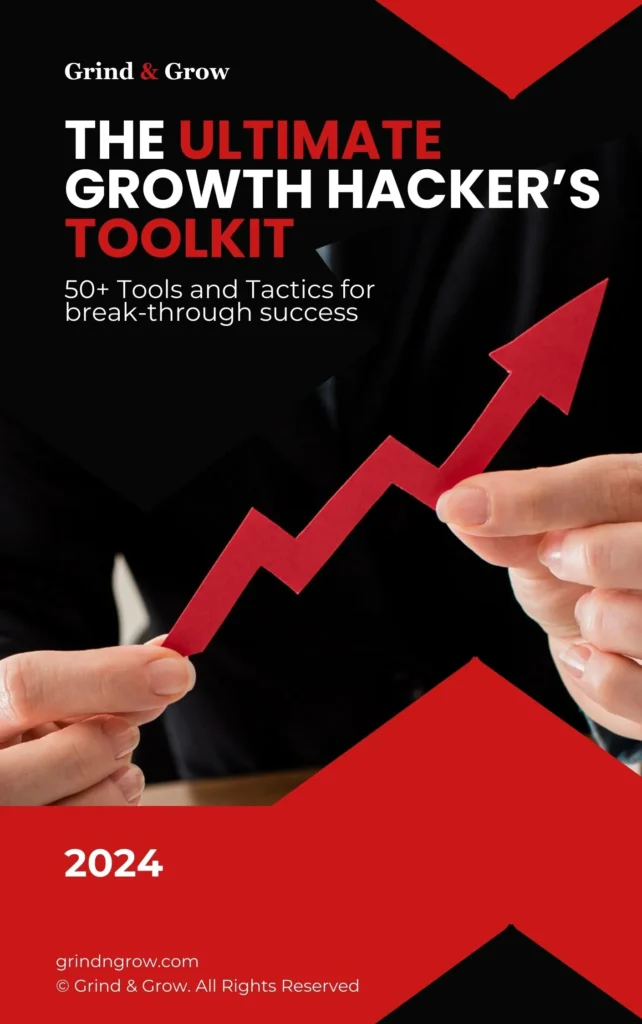Ai for Business
At Grind & Grow, we delve into how leveraging AI for business can propel your company’s growth and efficiency. This blog explores the myriad of ways in which artificial intelligence reshapes business operations, from increasing productivity to enhancing decision-making processes.
Understanding AI and Its Impact on Business
Artificial Intelligence (AI) has rapidly evolved from a futuristic concept to a crucial component of modern business strategies. Initially, AI’s journey began with basic problem-solving and data processing abilities, but today it encompasses a wide spectrum of technologies with capabilities that can fundamentally transform business operations.
The Evolution of AI
AI’s roots can be traced back to the 1950s and 60s with early computer scientists exploring the possibility of machines mimicking human intelligence. Fast forward to the present, and advancements in machine learning, neural networks, and deep learning have propelled AI into a tool that can process vast amounts of data, recognize complex patterns, and make informed decisions in a fraction of the time it would take a human.
Current State of AI in Business
Today, AI is not just a theoretical concept but a practical tool leveraged by businesses across various sectors. AI technologies can be categorically placed into three primary functions:
1. Automation of Routine Tasks: AI-driven automation handles repetitive tasks efficiently, freeing human resources for more strategic activities. For instance, customer service chatbots can manage queries round-the-clock, while robotic process automation (RPA) software can automate data entry and processing tasks in accounts payable departments.
2. Predictive Analytics: AI can analyze historical data to predict future trends and behaviors. This is invaluable for businesses in forecasting sales, inventory requirements, and even predicting customer churn. Companies like Netflix use AI to recommend shows and movies by analyzing viewing habits, thereby enhancing user experience and boosting retention rates.
3. Natural Language Processing (NLP): NLP allows machines to understand and respond to human language. This technology is behind virtual assistants like Amazon’s Alexa and Apple’s Siri, which can interpret voice commands and perform tasks ranging from setting reminders to controlling smart home devices. In a business context, NLP can be used for sentiment analysis on social media, helping companies gauge public opinion about their products or services.
Examples and Applications
Real-world applications of these AI capabilities are abundant. For instance, in the financial industry, AI helps in fraud detection by analyzing transaction patterns in real-time and flagging anomalies. In healthcare, AI-powered systems assist in diagnosing diseases from medical images, providing doctors with critical insights that can enhance patient care. Retail giants like Amazon use AI for inventory management, employing predictive analytics to ensure the right products are in stock based on consumer buying patterns.
By understanding the evolution and current state of AI, businesses can better appreciate how these technologies can be harnessed to drive growth, increase efficiency, and stay competitive. Leveraging AI to automate routine tasks, utilize predictive analytics, and employ natural language processing can lead to significant operational improvements, laying a solid foundation as we delve into the next chapter on boosting operational efficiency with AI.
Process Automation for Enhanced Efficiency
One of the key avenues through which AI amplifies operational efficiency is through process automation. Businesses across diverse sectors are integrating AI-powered automation tools to handle repetitive tasks that would otherwise consume valuable human hours. By automating these tasks, companies can redirect their workforce towards more strategic, value-driven activities.
For example, in the automotive industry, companies like BMW are deploying AI-driven robots to assemble car parts. This automation not only accelerates production timelines but also diminishes the risk of human error, which can be costly and time-consuming to rectify.
Reducing Human Error
Human error is an unavoidable aspect of manual operations, often leading to financial losses and compromised product quality. AI mitigates this by introducing precision and consistency into business processes. A notable case is that of IBM Watson in healthcare, where AI systems help analyze patient data to provide more accurate diagnoses and treatment recommendations. This reduces the likelihood of diagnostic errors and enhances patient care.
Optimizing Resource Allocation
Effective resource allocation is pivotal for operational efficiency. AI algorithms can analyze large datasets to forecast demand, optimize inventory levels, and allocate resources strategically. For instance, Amazon uses AI to manage its supply chain operations. Machine learning algorithms predict stock requirements and automate inventory replenishment, ensuring that products are available when needed without overstocking.
Real-World Examples
Several companies have successfully harnessed AI to streamline their operations. UPS, for example, utilizes an AI-powered route optimization system called ORION. This system analyzes data from various sources to determine the most efficient delivery routes, conserving fuel and reducing emissions. As a result, UPS can deliver packages faster and more sustainably.
AI Tools and Software
Businesses looking to leverage AI can utilize a range of tools and software for automation and efficiency. UiPath and Automation Anywhere offer comprehensive robotic process automation (RPA) platforms that enable businesses to automate complex workflows. Similarly, tools like Google Analytics and Salesforce Einstein employ AI to provide actionable insights, enhancing decision-making processes.
By integrating these AI tools, businesses can automate mundane tasks, minimize errors, optimize resources, and ultimately boost their operational efficiency. This lays a solid foundation for subsequent discussions on enhancing decision-making with AI, as streamlined operations create the ideal environment for implementing advanced analytical tools.
Enhancing Decision-Making with AI
Artificial Intelligence (AI) is rapidly reshaping how businesses approach decision-making. By leveraging AI for data analysis, predictive modeling, and risk assessment, organizations can make more informed and accurate decisions than ever before.
Data Analysis
AI-driven data analysis tools can process vast amounts of data quickly and with remarkable precision. Traditional data analysis methods often struggle with the complexity and volume of modern data. AI, on the other hand, can identify patterns, correlations, and trends that might be invisible to human analysts. For instance, companies can use AI to analyze consumer behavior data, leading to more informed marketing strategies and product development.
Predictive Modeling
Predictive modeling is another powerful AI application. By using machine learning algorithms, businesses can anticipate future trends and outcomes based on historical data. This has profound implications for sectors like finance, where AI can predict stock market trends, or healthcare, where it can forecast disease outbreaks. A noteworthy example is Netflix, which employs AI predictive analytics to determine what content will be popular with viewers, thus informing its production and acquisition strategies.
Risk Assessment
Assessing risks accurately is crucial for any business. AI can enhance risk assessment by evaluating data from multiple sources to identify potential threats or opportunities. For instance, financial institutions use AI to predict creditworthiness and detect fraudulent activities. Insurance companies leverage AI to analyze claims data, improving their ability to identify high-risk claims and reduce fraud.
Tools for AI-Driven Decision Making
Several AI-powered tools are designed to enhance decision-making. IBM Watson is renowned for its ability to process natural language and provide insights from vast datasets. Tableau, enriched with AI capabilities, allows businesses to create interactive and shareable dashboards that aid in data-driven decision-making.
Case Studies
Consider the case of Procter & Gamble, which utilized AI to analyze vast quantities of consumer and market data, leading to a more precise understanding of customer preferences. This enabled them to fine-tune product offerings and marketing strategies, resulting in significant growth. Similarly, General Electric (GE) uses AI to optimize their supply chain, making data-driven decisions that enhance efficiency and reduce costs.
In conclusion, incorporating AI into the decision-making process can transform how businesses operate, making them not only more efficient but also more competitive in the marketplace.
AI-Powered Customer Experience
Artificial Intelligence is revolutionizing customer experience, enabling businesses to provide personalized, seamless interactions. One transformative application is chatbots. These AI-powered virtual assistants offer 24/7 customer support, handling inquiries instantly and guiding users through complex processes. For example, e-commerce giant Amazon uses AI chatbots to assist customers with everything from order tracking to product recommendations, significantly enhancing user satisfaction.
Personalized Marketing
Another compelling use of AI in enhancing customer experience and driving innovation is personalized marketing. AI algorithms analyze vast amounts of consumer data to craft personalized content and product recommendations. Netflix exemplifies this through their sophisticated recommendation system, which suggests movies and shows based on user behavior. This personalized approach not only improves user satisfaction but also increases engagement and retention rates.
Customer Behavior Analytics
Understanding customer behavior is critical for any business aiming for growth, and AI excels in this domain. AI tools can analyze data from various touchpoints to provide deep insights into customer preferences and behaviors. Businesses like Spotify utilize AI-driven analytics to curate personalized playlists and recommend content, thereby driving user engagement and loyalty.
Case Studies of Innovative AI Applications
Numerous companies have leveraged AI to create groundbreaking products and services. For instance, Starbucks uses AI to provide personalized offers through its app, utilizing data such as purchase history and location to craft individualized promotions. This has not only boosted sales but also enhanced customer loyalty.
Similarly, The North Face employs IBM’s Watson AI to guide customers in their jacket purchases. By asking users specific questions about their needs and preferences, the AI provides tailored recommendations, enhancing the shopping experience and driving sales.
Staying Competitive with AI
In today’s fast-paced market, staying ahead of competitors is crucial. Implementing AI-driven solutions can give businesses the edge they need. By adopting AI for customer experience and innovation, companies can not only meet but exceed customer expectations, driving growth and securing their position in the marketplace.
Using AI to innovate and enhance customer experience is no longer optional—it’s essential. Those who invest in these technologies now will be the ones leading their industries tomorrow.
Common Questions Answered
Q: What is AI and how does it work?
AI, or Artificial Intelligence, refers to the simulation of human intelligence in machines. These systems are designed to perform tasks that typically require human intelligence, such as decision-making, speech recognition, and problem-solving.
Q: How can AI improve my business operations?
AI can improve business operations by automating routine tasks, reducing errors, and optimizing resource allocation. This leads to increased efficiency and cost savings.
Q: What are some AI tools that can help businesses?
Some AI tools that can aid businesses include machine learning platforms, data analytics software, natural language processing tools, and customer service chatbots.
Q: Is AI suitable for small businesses?
Yes, AI is suitable for businesses of all sizes. There are scalable AI solutions that can be tailored to fit the needs and budgets of small businesses, providing them with competitive advantages.
Conclusion
In conclusion, integrating AI into your business operations can significantly boost efficiency, improve decision-making, enhance customer experience, and drive innovation. By exploring the strategies detailed in this Grind & Grow article, you can unlock the full potential of AI for business growth.
Interested in how you can accelerate the growth of your business? Find more resources like this one to grow your business cost effectively at grindngrow.com, and consider joining our mailing list to get exclusive tips and extraordinary savings on services to grow your business.


